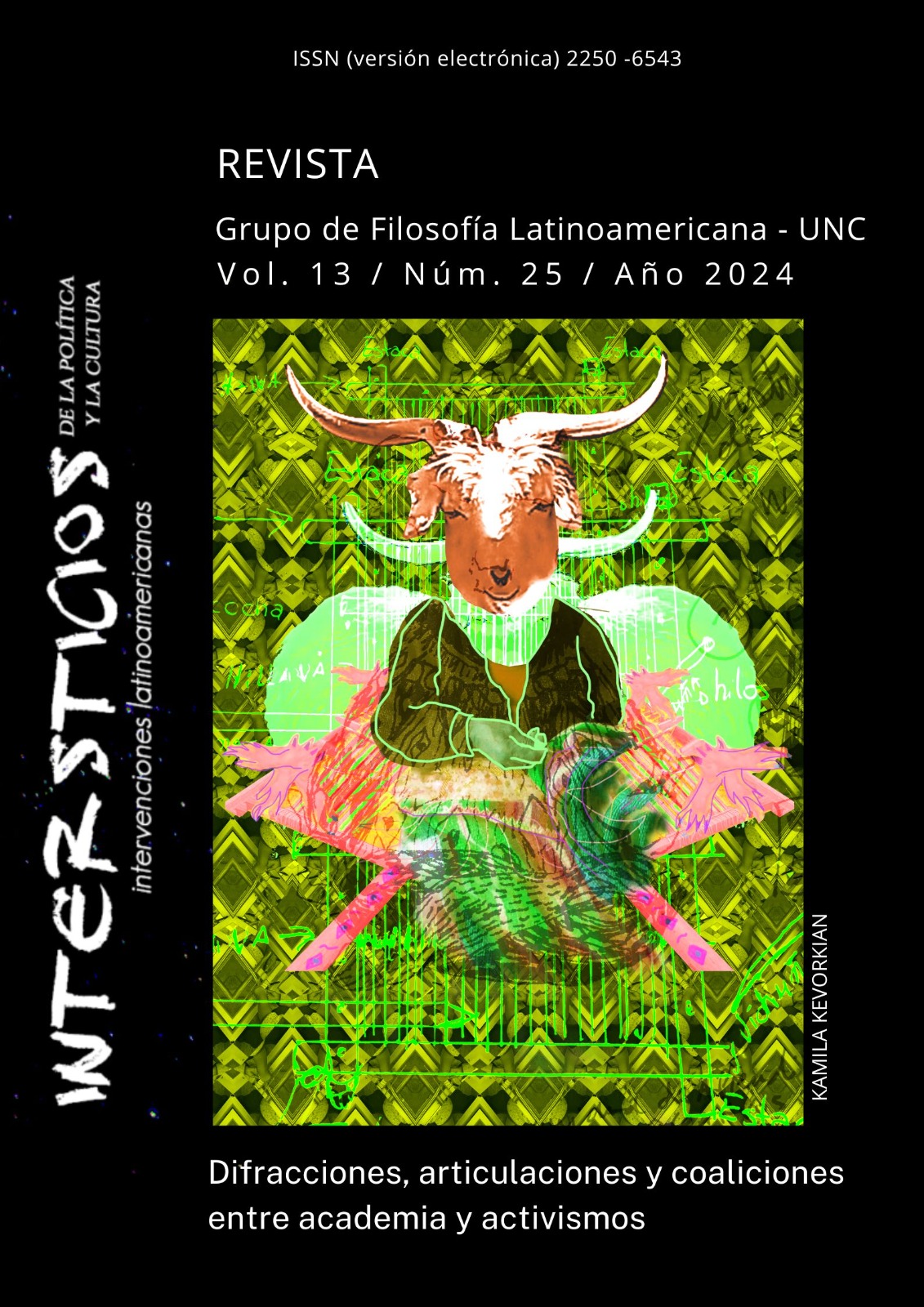Vol. 13 No. 25 (2024): Diffractions, Articulations, and Coalitions Between Academia and Activisms

Learning to look from the perspective of other lives—marginalized, oppressed, subdued, subaltern—implies making visible our privileges and recognizing that it's possible to inhabit subject positions that enable us to relativize them. It's about the possibility of seeing from an embodied place that strengthens objectivity because the viewpoint of subaltern positions allows us to see what appeared biased when viewed only from hegemonic, dominant, institutionalized positions. Learning to think from mobile and interchangeable positions doesn't guarantee that the standpoint—or any other subaltern position—may not be contradictory, ambiguous, or distorted. What these critical exercises engage are the conditions of possibility for dialogue and the translation of knowledge, practices, and technologies where learning to listen radically transforms knowledge production.
Engaging in the exercise of expanding audibility to the voices, feelings, and actions of migrant women, popular sectors, wage earners, precarious workers, indigenous people, militants allows us to connect with stories, narratives, testimonies, life trajectories, corpobiographies. All of which requires and presupposes the articulation of academia/activisms as well as theoretical production towards situated and contextual epistemic-methodological expansions.
Learning to look, learning to think, learning to listen, expanding audibility not only disrupts the distance between subject and object in interest, involvement, embodiment but also challenges disinterested views in co-implication, alliances, the search for affinities, knots and (un)coverings to sustain in an epistemology of articulation that assumes that subjects involved in the webs of inquiry are crossed by diverse interests and particular biases, that objects are active and mobile, and that research contexts and processes reconfigure relationships.
Producing knowledge in relation and having that exchange of knowledge and practices generate situated knowledge as well as new articulations and connections in the territory, assumes that both the exchange and the productivity that result from it are tied to their conditions of production. We refer to situationality, geopolitical location, historical contingencies, research funding policies, the ways in which we configure (non-)academic communities, the relationships between activism and academia, the uses of research, disputes over what is conceived as expert knowledge and by whom it is generated.

